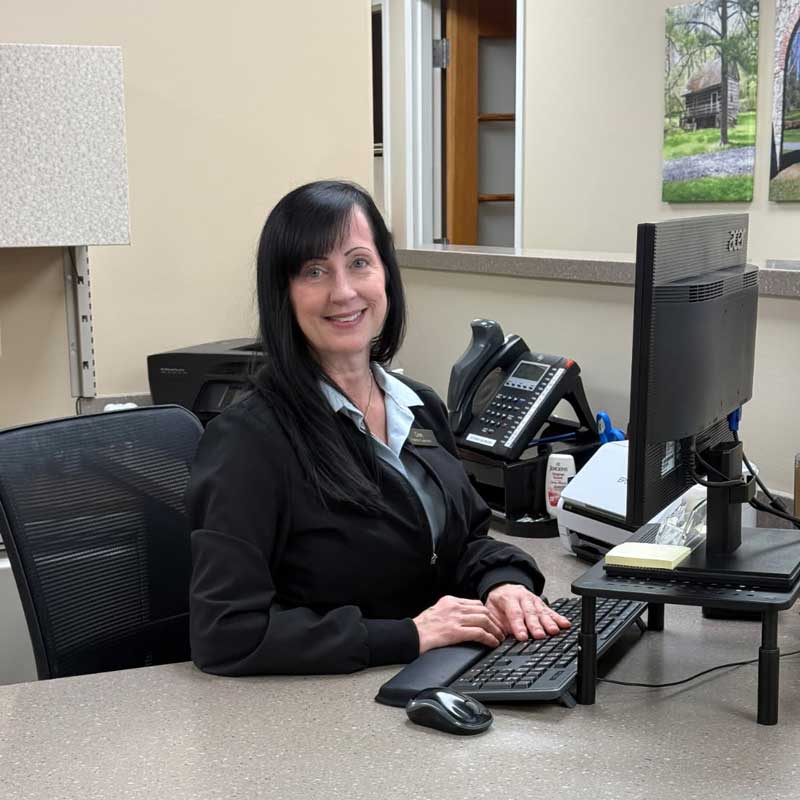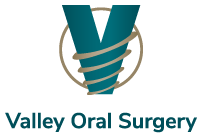
Dee DeLong, practice supervisor at Valley Oral Surgery, shares her oral cancer survivor story and emphasizes the importance of early detection and regular screenings during Oral Cancer Awareness Month.
During Oral Cancer Awareness Month in April, Dee DeLong, practice supervisor for Valley Oral Surgery’s Allentown and Lehighton locations, urges everyone to have an oral cancer screening performed by their dentist or primary care physician.
As a longtime Valley Oral Surgery employee, DeLong was familiar with the signs of oral cancer. In 2015, it came frighteningly close to home when she was diagnosed with the disease in her mid-40s.
As someone who never smoked, rarely drank, and had no family history of oral cancer, she didn’t have any known risk factors for oral cancer. But with her background in dental care, she knew something wasn’t right and asked Dr. Robert Laski to take a look.
Get a free oral cancer screening!
In 2025, Lehigh Valley Health Network is offering free oral cancer screenings April 9, 16, and 23; for locations and more information, visit https://www.lvhn.org/conditions/oral-cancer/oral-cancer-screenings
“I was clenching at night a lot and by doing that, I was biting the right side of my tongue over and over for months,” DeLong said. “Eventually, what I thought was a canker sore wasn’t going away. It was starting to become very sore and tender and I noticed a red dot in the center.”
The first signs of oral cancer include lesions, lumps, and patchy areas in the tissues of the month. According to the American Association of Oral and Maxillofacial Surgeons, more than 450,000 new cases of oral, head, and neck cancer are diagnosed each year, and more than 9,750 people will die from oral cancer this year.
Non-smokers younger than 50, like DeLong at the time of her diagnosis, are the fastest-growing segment of the oral cancer population. An estimated 25 percent of oral cancer patients have no known risk factors.
“I brought it to the attention of the doctors here at work, who thought it was a good idea for me to get a biopsy,” DeLong said. “Our doctors at Valley Oral Surgery take things very seriously and that’s why I choose to work here. They’re very vigilant.”
Her biopsy results came back positive for oral squamous cell carcinoma of the right side of her tongue. Squamous cell carcinoma is the most common type of oral cancer.
“None of us thought it would go to that level. I was just devastated to get the results,” she said. “But the doctors at our practice were wonderful. They were very caring and even when I came into work and couldn’t talk well, they were understanding. I’ve stayed here as an employee because I know they care about their patients.”
Dr. Laski referred DeLong to an ear, nose, and throat specialist who performed her first partial glossectomy, removing part of her tongue. Because the borders of the carcinoma weren’t clear, she had to have the procedure again two weeks later.
DeLong remained vigilant about monitoring her health and her mouth and became concerned again five years later. She learned the cancer had returned and she needed to have a partial glossectomy once more. She has had a total of five procedures to remove cancerous areas of her tongue since her initial diagnosis 10 years ago.
DeLong is able to share her experience with patients during surgery consultations, urging them to stay proactive and have any potential issues looked at by a doctor.
“In a few short months, it could have affected all of my tongue. I hope my story encourages people to get checked. These professionals’ eyes will see things that you as a patient may not recognize,” she said. “People remember to get colonoscopies and mammograms, but they should get screenings for oral cancer as well. This is just as important and can quickly become just as deadly as a lump in your breast or a polyp in your colon.”
Although many people with oral cancer may have no symptoms, contact your dentist or your primary care physician immediately if you notice any of the following conditions:
- A sore on the lip or in the mouth that does not heal.
- A lump or thickening on the lips or gums or in the mouth.
- A white or red patch on the gums, tongue, tonsils or lining of the mouth.
- Bleeding, pain or numbness in the lip or mouth.
- Change in voice.
- Loose teeth or dentures that no longer fit well.
- Trouble chewing or swallowing or moving the tongue or jaw.
- Swelling of the jaw.
- Sore throat or feeling that something is caught in the throat.
